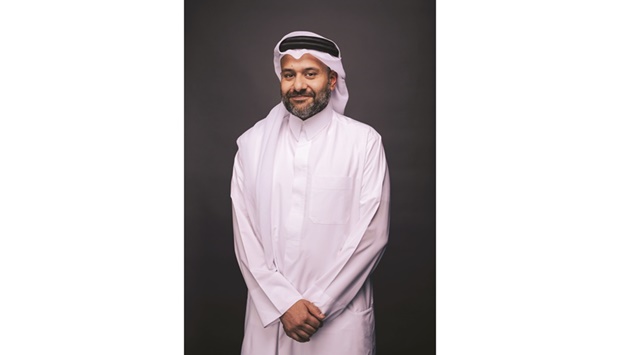Non-energy growth in Doha regained momentum this February, reflecting the impending FIFA World Cup as a source of strength, according to the Qatar Financial Centre's purchasing managers' index (PMI).
The optimism comes mainly on the back of robust expansion in new orders, output, employment, suppliers’ delivery times and stocks of purchases.
The PMI rebounded from January's six-month low of 57.6 to 61.4 in February, indicating a rapid improvement in overall business conditions.
The 3.8-point rise in the headline figure recovered all the loss registered in the opening month of 2021 and was the third-largest month-on-month gain in the survey history. Moreover, the latest reading was the joint-third highest since the series began in April 2017. Only October (62.2) and November (63.1) 2021 had seen stronger growth over the last five years.
The Qatar PMI indices are compiled from survey responses from a panel of around 450 private sector companies. The panel covers the manufacturing, construction, wholesale, retail, and services sectors, and reflects the structure of the non-energy economy according to official national accounts data.
The boost in the PMI in February was reflected in all five of the headline figure's components with the biggest directional influence coming from new orders (+1.8 points), followed by output (+1.4), employment (+0.3) and stocks of purchases (+0.2). Suppliers' delivery times had a fractionally positive influence compared with January.
Growth quickened in the manufacturing, construction and services sectors, while wholesale and retail also registered a strong overall expansion in activity despite some loss of momentum since January.
"Indicators for output, new business, purchasing, employment and backlogs, all signal marked rates of growth in the latest period, with survey respondents continuing to highlight the forthcoming FIFA World Cup as a source of business," QFC Authority chief executive Yousuf Mohamed al-Jaida said.
New business growth accelerated in February and was among the fastest recorded in almost five years of data collection. All four sectors posted stronger growth in new orders, led by manufacturing.
With demand improving, backlogs of work increased for the seventeenth consecutive month and at a rate second only to last November in the survey's operation.
Employment in the non-energy private sector continued to rise in February, extending the current series-record sequence of job creation to 17 months. Moreover, the rate of growth was among the strongest on record. Purchasing growth also accelerated in February to the second-strongest on record.
Average input costs rose in February, linked to both purchase prices and wages. In contrast, prices charged for goods and services fell for the first time in five months, and at the fastest rate since January 2020.
The latest PMI data on Qatar's financial services sector signalled burgeoning demand in February. New business received in the sector rose at the third-fastest rate on record in the near-five year series history, leading to the second-fastest rise in total business activity.
The optimism comes mainly on the back of robust expansion in new orders, output, employment, suppliers’ delivery times and stocks of purchases.
The PMI rebounded from January's six-month low of 57.6 to 61.4 in February, indicating a rapid improvement in overall business conditions.
The 3.8-point rise in the headline figure recovered all the loss registered in the opening month of 2021 and was the third-largest month-on-month gain in the survey history. Moreover, the latest reading was the joint-third highest since the series began in April 2017. Only October (62.2) and November (63.1) 2021 had seen stronger growth over the last five years.
The Qatar PMI indices are compiled from survey responses from a panel of around 450 private sector companies. The panel covers the manufacturing, construction, wholesale, retail, and services sectors, and reflects the structure of the non-energy economy according to official national accounts data.
The boost in the PMI in February was reflected in all five of the headline figure's components with the biggest directional influence coming from new orders (+1.8 points), followed by output (+1.4), employment (+0.3) and stocks of purchases (+0.2). Suppliers' delivery times had a fractionally positive influence compared with January.
Growth quickened in the manufacturing, construction and services sectors, while wholesale and retail also registered a strong overall expansion in activity despite some loss of momentum since January.
"Indicators for output, new business, purchasing, employment and backlogs, all signal marked rates of growth in the latest period, with survey respondents continuing to highlight the forthcoming FIFA World Cup as a source of business," QFC Authority chief executive Yousuf Mohamed al-Jaida said.
New business growth accelerated in February and was among the fastest recorded in almost five years of data collection. All four sectors posted stronger growth in new orders, led by manufacturing.
With demand improving, backlogs of work increased for the seventeenth consecutive month and at a rate second only to last November in the survey's operation.
Employment in the non-energy private sector continued to rise in February, extending the current series-record sequence of job creation to 17 months. Moreover, the rate of growth was among the strongest on record. Purchasing growth also accelerated in February to the second-strongest on record.
Average input costs rose in February, linked to both purchase prices and wages. In contrast, prices charged for goods and services fell for the first time in five months, and at the fastest rate since January 2020.
The latest PMI data on Qatar's financial services sector signalled burgeoning demand in February. New business received in the sector rose at the third-fastest rate on record in the near-five year series history, leading to the second-fastest rise in total business activity.


